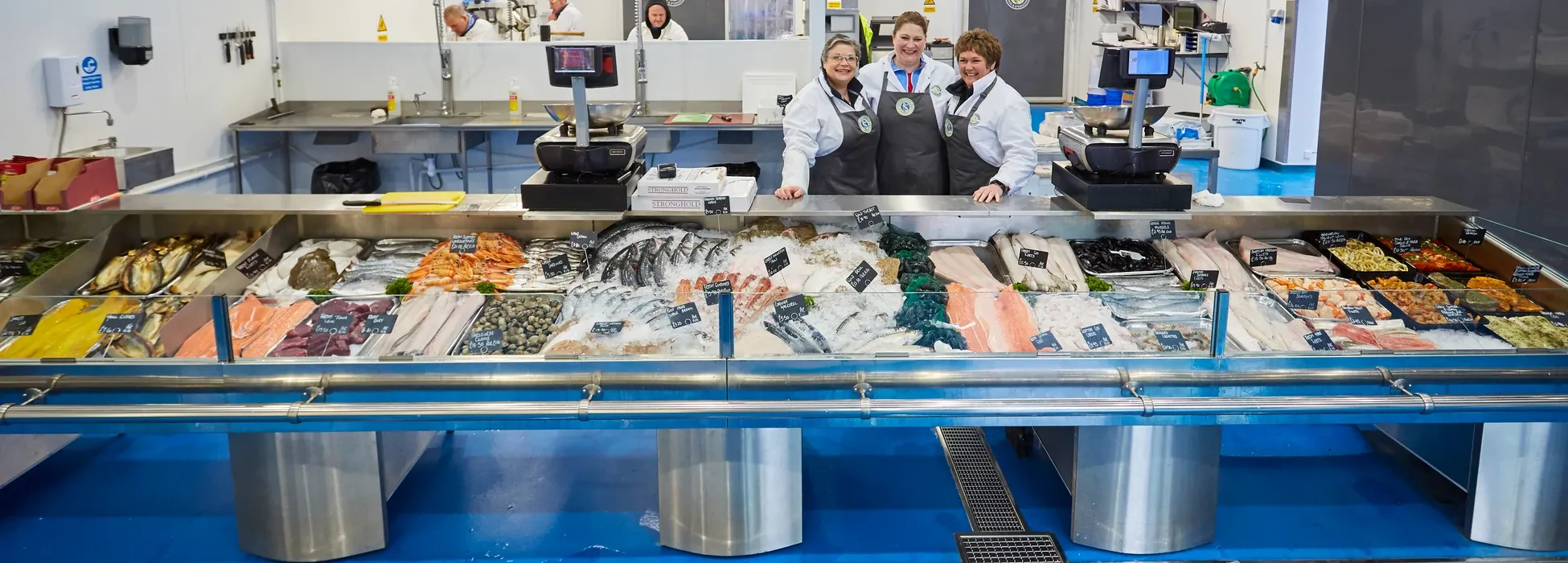Today’s discerning visitor wants an authentic Welsh experience – a complete getaway from the day to day grind of their normal existence. Fresh and local foods are at the top of the list when putting together a quality break, making sourcing local food in the hospitality industry a priority. The demand for local food suppliers continues to grow rapidly as a result.
Developing your relationships with local suppliers, whether you are a chef, restaurant or hotel manager, or buyer, have become more important than ever before. Here are some of the benefits you will experience.
1.Savings costs
When you source local produce, you reduce your food miles, which in turn reduces shipping costs. You can, therefore, improve your profit margin by partnering with local suppliers. For example Mermaid Seafoods in Llandudno source from many national and international markets, but also work with local fishermen to take their catch in season. This means that certain fish are very plentiful (and much lower cost) at certain times. A worthy challenge for chefs to see how many different ways they can prepare the same raw ingredient! Moreover, food travelling shorter distances is less likely to spoil or be damaged, thus reducing food waste and costs.

2.It Tells a Story
It has never been more important to tell the story behind your brand and to differentiate your company from its competitors. In the eyes of consumers, local sourcing is an ideal theme for your menu, since it’s increasingly desirable. Consumers today are interested in learning more about the origins and farming practices of their food. When you work with a local food supplier, you can conduct due diligence to ensure a high level of transparency and traceability, often down to the individual farm and the families that work these businesses.
3.Offers Fresher Ingredients
When you source locally, you can enjoy fresh foods that were just harvested rather than those that have been stored long-distance for long-distance transportation. Nutritional value will always be higher for fresher foods and along with being tastier will be very much appreciated by consumers too. Lynette Esposito of the Elm Tree Hotel in Llandudno gives the example of her egg supplier, sources from a variety of local farms. The supplier is always happy to be flexible in the case of her running low on stock and turn up with that fresh delivery.
4.Reduces your Carbon Footprint
Local food purchasing emphasises sustainability. By adopting more sustainable consumption habits, consumers are playing their part in conserving the environment. In general, the longer your food is transported, the greater its environmental impact and food miles. As a result, working with local hospitality food suppliers can demonstrate your commitment to a greener future for your customers. Another way you can minimise your food’s environmental impact is to choose farmers who follow organic and sustainable farming practices. Customers who appreciate this will probably be willing to pay more generally, helping your bottom line.
5.An Investment In Our Community
By buying produce from someone other than a local producer, you leave the local economy. When you shop locally, you support local producers and help create jobs in your area. In supporting your local farmer, you can ensure that farms in your area will carry on existing right into the future. With an uncertain energy future and a heavy reliance on fossil fuels for food production, packaging, transportation, and storage, this is imperative for long-term food security.
You can enjoy all the above benefits and more when you partner with your local hospitality food suppliers. So support our unique way of life and culture in Wales by keeping it local!




